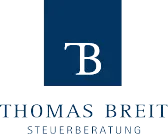Do you currently lack the necessary cash to convert your sole proprietorship into a GmbH limited liability company? But you do have assets, such as land, shareholdings or even cars that you could contribute to your new company? Then the so-called GmbH Sachgründung could be a real option for you.
Incorporating a limited liability company by non-cash capital contribution enables you to contribute the 25,000 euros capital that is required to found a GmbH entirely in kind. In this case, no cash has to be paid into the company.
But is this really a good idea? Are there hidden risks lurking here, such as private liability risks?
The short answer: In principle, you can benefit from a non-cash incorporation in certain situations. However, under certain circumstances you may actually be liable with your private assets if certain requirements are not met.
In this article, I will explain to you in an easy-to-understand way which requirements I refer to and which advantages and disadvantages a non-cash incorporation offers.
This post was updated on 22 July 2021.
What is non-cash incorporation in the case of a GmbH?
In the case of a non-cash incorporation, you raise the capital required for the incorporation, namely 25,000 euros, entirely with non-cash assets (cars, machines, land, shareholdings, etc.)
What is the difference between a non-cash and a “normal” cash incorporation?
The difference lies primarily in how the share capital is paid into the GmbH:
- With a cash incorporation, the required capital of 25,000 euros is transferred to the company in cash.
- In the case of a non-cash incorporation, you transfer part of your assets to the company.
When would a non-cash incorporation make sense for you?
- Whenever you do not have enough cash at the moment to raise the share capital required for the incorporation.
- If you own assets that are to belong to the company anyway.
- When a corporate transformation is to take place (e.g. converting a sole proprietorship into a limited liability company (GmbH)) or in the event of changes to the corporate structure (mergers, divestments, change of legal form).
Mandatory for every non-cash incorporation: The non-cash incorporation report
If you decide to establish a non-cash incorporation, you must submit a so-called Sachgründungsbericht or non-cash incorporation report to the local court. In this report you specify the liable capital and state the value of your assets.
Please note: You cannot simply state any value, but must be able to justify the value. For example, you must state when you purchased an asset and what valuation method you used. Possible procedures would be the present or fair value (i.e. the value the item has right now) or also the replacement value (the amount that would have to be paid for an equivalent item).
Documents that you should definitely attach to the non-cash incorporation report are:
- Invoices or purchase contracts of all the assets to be contributed.
- An expert’s report in order to avoid the values being challenged by the court.
The preparation of such a non-cash incorporation report is obligatory (Section 5 German Limited Liability Companies Act (GmbHG)) and if there is no non-cash incorporation report, the local court will reject the incorporation.
As a rule, the information you provide on the incorporation of a non-cash company will be examined very closely. You should really not “tell any fibs” here, it makes more sense to set a somewhat lower value in case of doubt.
My expert tip: Go for assets where it is easy to prove their value.
In order to avoid lengthy examinations of the non-cash incorporation report and expensive appraisal costs, I recommend that (if possible) you only contribute assets when their value can be proven without great effort. These include, for example, securities or cars.
Transferring unique collector’s items should be avoided if possible, as an expert opinion is always required in such cases. In addition, two independent experts may well determine completely different values. Disputes and discussions with the court that examines the non-cash incorporation report would be inevitable.
What advantages does a non-cash incorporation offer?
Advantage 1: You do not need any cash
You can contribute individual assets or entire business units that your company can use. This is probably the main advantage for most entrepreneurs thinking about using non-cash incorporation to set up a company.
Advantage 2: Opportunity to use an 8-month retroactive effect
You can backdate a corporate transformation that took place on, say, 30 August to 1 January. In this way you can avoid the costs of preparing a new balance sheet or secure tax advantages for corporation and trade tax.
What are the risks involved in setting up a company using non-cash incorporation?
Risk #1: You may be personally liable in the event of insolvency.
If, in the event of insolvency, it turns out that the value of the assets does not correspond to the value determined in the contribution after all, you are liable for the difference with your personal assets. The best way to explain this is to give you a short practical example:
Let us assume that the value of the assets you contributed to the newly founded GmbH was set at 100,000 euros. A few years later, the company unfortunately slips into insolvency and an insolvency administrator is appointed to sell the existing assets.
Although the value of the assets was set at 100,000 euros, the administrator can only achieve sales proceeds totaling 60,000 euros.
Since you as a shareholder are personally liable for the credit quality of the assets, you must now personally pay the difference of 40,000 euros in cash.
Risk #2: You have higher incorporation costs
The additional tax consultancy costs for a non-cash incorporation start at 500 euros (net), the notary fees start at 500 euros (net) and the costs for the local court start at 400 euros (gross). The price can of course vary – depending on the individual case.
Risk #3: Your limitation of liability will only apply after 5 years
If you contribute a complete company as an asset for the incorporation, you will only benefit from the limitation of liability after a five-year waiting period.
Risk #4: The incorporation is rejected because of errors in the non-cash incorporation report
As explained above, the value of the assets stated will be scrutinized closely. Even if you state all valuation methods used and appraisals are attached, the values may be challenged by the court.
In this case, the incorporation will be rejected until the information is corrected. You can usually make these changes quickly, but they still cost time and nerves.
Conclusion: Non-cash incorporation is only an alternative if you avoid the pitfalls
As you can see, non-cash incorporation is a possibility for setting up a corporation or your business even if there isn’t a lot of “cash” available. In addition, you can contribute assets to your company and benefit from them.
However, if you are not very conscientious or do not contribute assets that will keep their value, you can quickly become liable with your private assets in the event of economic difficulties or insolvency. Also, avoid contributing assets in a GmbH if the value of the assets can only be proven with costly expert opinions.
If you have any further questions regarding the non-cash incorporation of a company or need advice for your company transformation, I would be happy to help.
As I have been a tax consultant in Hamburg for many years, I can explain what you need to pay attention to and I can calculate exactly whether a conversion is really worthwhile for you in the long term.
For a personal consultation you can reach me anytime via phone (+49 40 443311), e-mail (anfrage@steuerberatung-breit.de) or my contact form (click here!).
Kind regards,
Thomas Breit
Photo: © Sergey Nivens – Fotolia



